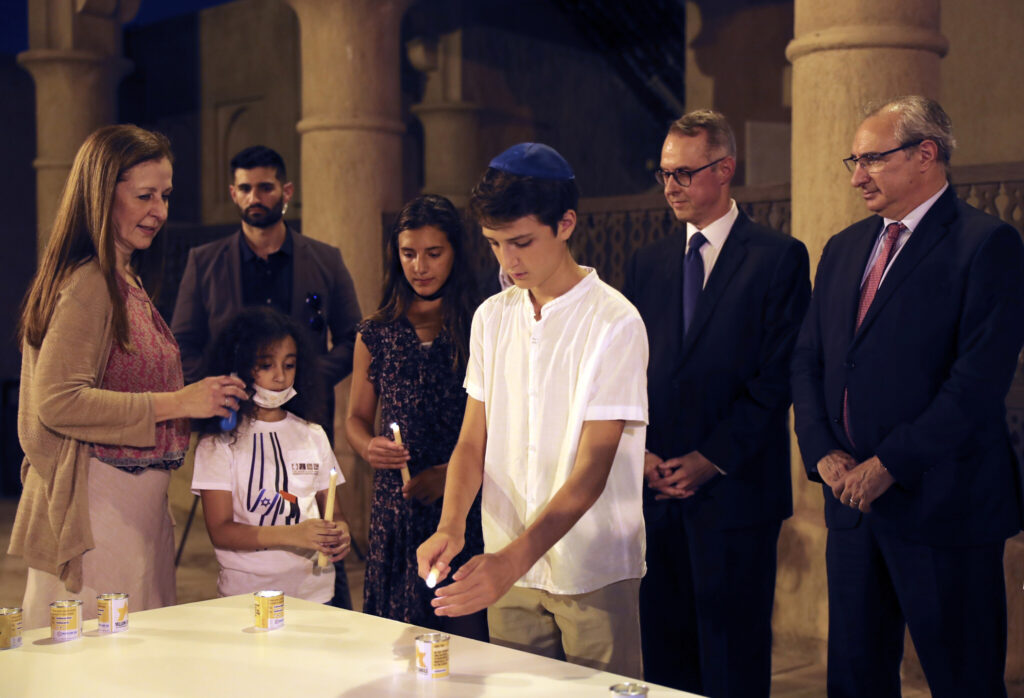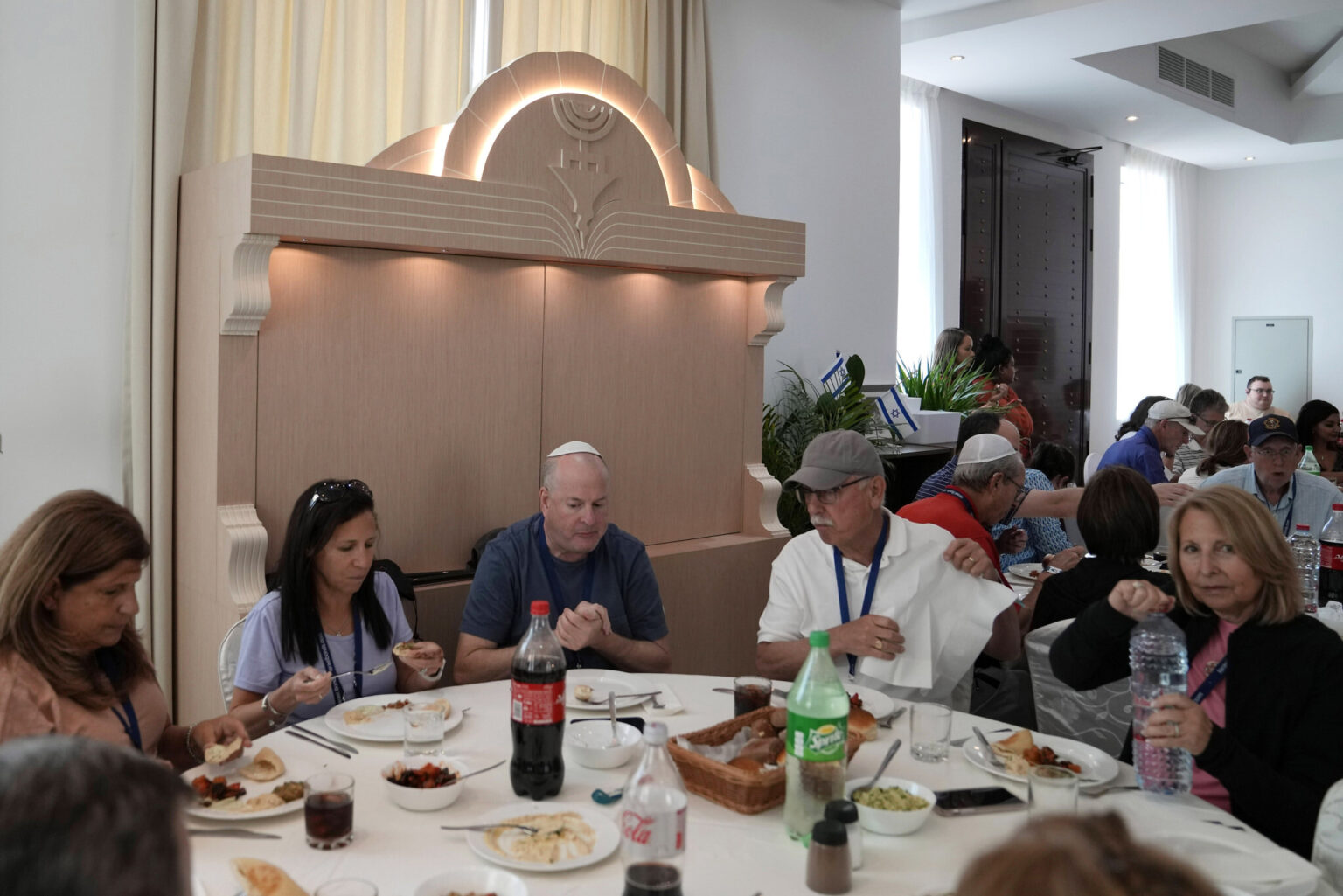Jewish families living in the United Arab Emirates are growing increasingly worried as their children face rising antisemitism in schools and public spaces. Parents say the recent conflict between Israel and Hamas in Gaza has led to a noticeable shift in how Jewish people—especially children—are being treated in the country.
The UAE, known for its efforts to promote tolerance and religious coexistence, has been home to a small but growing Jewish community in recent years. Following the Abraham Accords in 2020, which established formal diplomatic ties between the UAE and Israel, many Jewish families felt welcomed and hopeful about a future of peace and understanding. But the recent war in Gaza has brought a wave of tension, fear, and hate speech that some parents say has reached their own children.
Families Speak Out
Several parents have come forward—most anonymously out of fear for their safety—saying their children are being verbally bullied, socially isolated, and even threatened in schools. “My son came home crying after being called names in class,” one mother said. “He was told he should leave the country because he’s Jewish. We never thought this would happen here.”

Another parent said their daughter was excluded from group projects and told by her peers that “Jewish people are responsible for what’s happening in Gaza.” Despite efforts by schools to maintain neutrality, some children are bringing emotionally charged opinions from home or social media, and directing them at their Jewish classmates.
These incidents have left many parents feeling anxious and heartbroken. “Our children are growing up in a place where they are supposed to feel safe,” a father shared. “We chose to live in the UAE because it values tolerance. But now, we feel like our identity is being used against us.”
A Shift in Atmosphere
The Jewish community in the UAE, although small, has been active in building bridges between cultures and faiths. Synagogues have been established, Jewish holidays are celebrated openly, and kosher food has become more available. But since the outbreak of violence in Gaza, the community says there’s been a noticeable change.
“People who used to greet us warmly now give us cold looks,” said one Jewish resident of Dubai. “We feel judged not for who we are, but because of something happening thousands of miles away that we have no control over.”
The rise in global antisemitic incidents during times of Middle Eastern conflict is nothing new. Across Europe, the US, and other parts of the world, Jewish communities often face increased hostility during such times. But many say they didn’t expect it to happen in the UAE—a country that has invested heavily in promoting religious harmony and interfaith cooperation.
Tragic Events Add to Fear
Adding to the sense of unease was the tragic death of Rabbi Zvi Kogan, a respected Jewish leader who had been instrumental in helping the Jewish community grow in the UAE. His body was found in Dubai after he had been reported missing. Although authorities have arrested suspects and launched an investigation, many in the Jewish community fear the killing may have been motivated by antisemitic hate.
This incident, while isolated, has only deepened the sense of vulnerability among Jewish families. “It reminded us that even in a country known for safety and openness, hate can still find a way,” said one Jewish resident.
Schools Struggle With Tensions
Many parents say schools are struggling to manage the political and emotional conversations sparked by the Gaza conflict. While some educators are trying to remain neutral and supportive, others have allowed strong political opinions to be expressed in class, sometimes without correcting misinformation or hate speech.
In some cases, parents say their children have been made to feel personally responsible for the conflict, simply because they are Jewish. “My daughter was asked by a teacher how she felt about the war,” one mother said. “She was just 10 years old. How is she supposed to answer that?”
This concern isn’t limited to the UAE. Around the world, schools have become emotional battlegrounds during the Israel-Palestine conflict. In many places, Jewish students have reported feeling unsafe or unwelcome as tensions escalate.
Community Leaders Call for Dialogue
Leaders within the UAE’s Jewish community are calling for calm, dialogue, and understanding. They stress the importance of separating political disagreements from personal identity and warn against blaming local Jewish people for events unfolding in another country.
Rabbi Elie Abadie, a prominent figure in the Jewish community in the Gulf, has urged people of all backgrounds to continue conversations built on respect and shared values. “We must work together to prevent hate from taking root in our schools, streets, and communities,” he said. “This is a time to listen, to learn, and to support one another—not to divide.”
Jewish leaders are also working closely with the UAE government and school administrators to raise awareness about the rise in antisemitism. Educational workshops, interfaith meetings, and tolerance programs are being discussed to address the issue and prevent further harm.
Government Response
The UAE government has long promoted itself as a beacon of religious tolerance in the region. The Abrahamic Family House in Abu Dhabi—featuring a mosque, a church, and a synagogue side-by-side—is one example of this commitment. Officials have also condemned all forms of racism and hate speech.
In response to concerns raised by the Jewish community, UAE authorities have promised to investigate any reported incidents of discrimination and ensure the safety of all residents. “There is no place for hate in our society,” one official said. “We are committed to protecting everyone who calls the UAE home.”
Looking Ahead
Despite the challenges, many Jewish families say they still have faith in the UAE’s commitment to peace and tolerance. But they also believe that more needs to be done to educate the public, support victims of antisemitism, and promote a message of unity in times of global conflict.
“Our children deserve to grow up in a world where they are not judged by their religion,” one parent said. “The UAE gave us hope. We still believe in that hope. But now we need action.”
As the war in Gaza continues, families across the region and beyond are feeling the ripple effects. For Jewish families in the UAE, the hope is that this difficult moment will lead to deeper conversations, greater understanding, and stronger protections for all communities, regardless of their faith.



